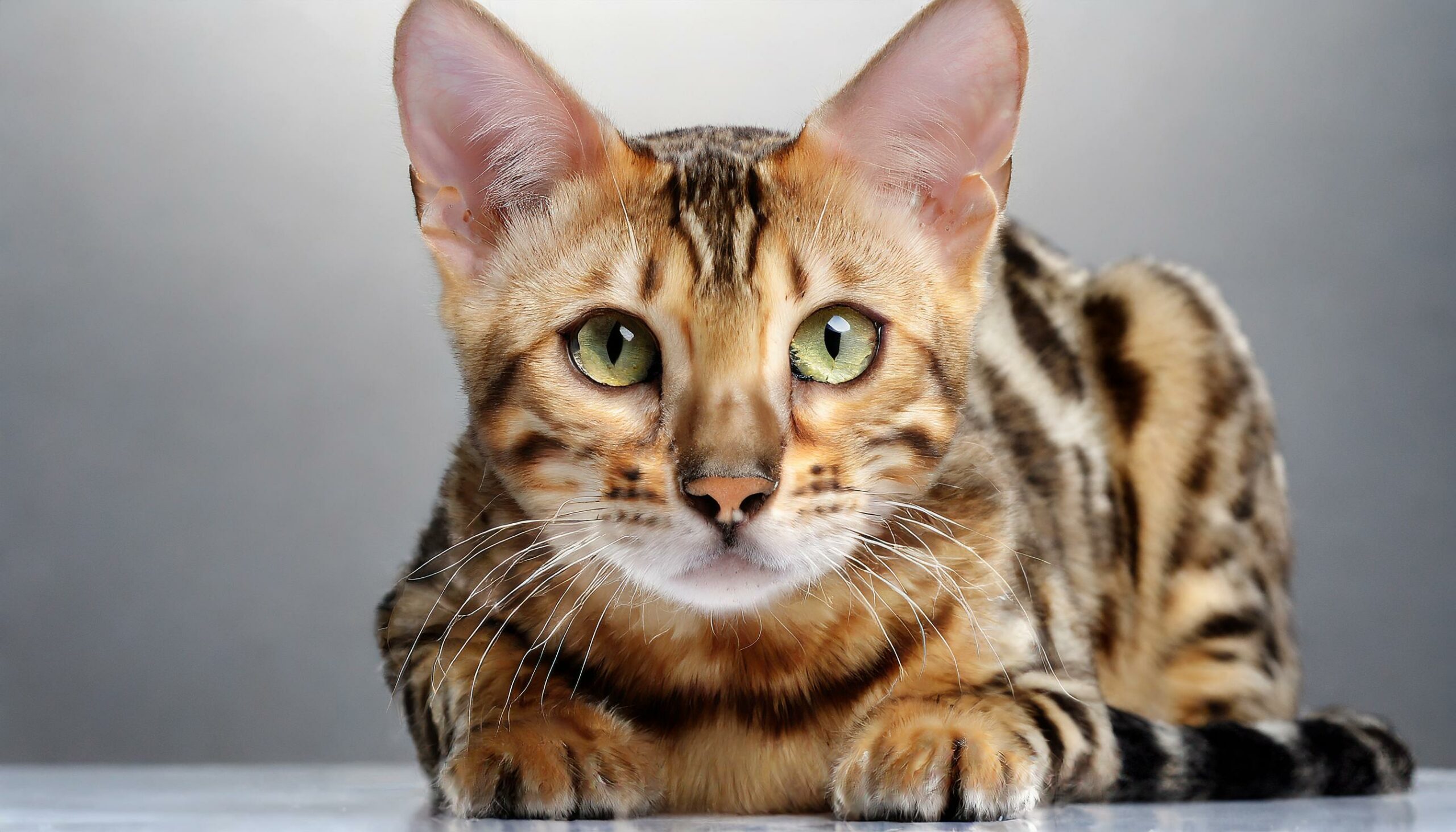The Bengal cat is a remarkable and exotic breed, renowned for its striking appearance and dynamic personality. Originating from the crossbreeding of domestic cats with the Asian leopard cat (Prionailurus bengalensis), Bengals are distinguished by their vibrant coat patterns, which can resemble those of their wild ancestors. This breed stands out not just for its physical beauty but also for its active, playful nature, making it a captivating addition to any home.
History and Origin
The Bengal cat breed was developed in the United States in the 1970s by a breeder named Jean Mill. Mill’s objective was to create a domestic cat with the physical attributes of the wild Asian leopard cat but with a friendly, domestic cat temperament. The initial breeding was between a female Asian leopard cat and a domestic male cat. Over the years, careful breeding practices have emphasized health, temperament, and the distinctive coat patterns that Bengals are known for today.
Physical Characteristics
Bengal cats are medium to large-sized felines, with males typically weighing between 10 to 15 pounds and females slightly smaller. They have a robust and athletic build, with a muscular body that enables their characteristic graceful movement.
One of the most striking features of the Bengal cat is its coat, which can come in various patterns, including spotted or marbled, on a background that ranges from gold to rust, brown, and even silver. The coat is not only beautiful but also feels luxurious, being soft and short.
Their eyes are another captivating trait, often wide and round, with colors ranging from gold to green, adding to their wild, exotic appearance.
Personality and Behavior
Bengal cats are known for their energetic and playful demeanor. They are highly active and enjoy engaging in play, which makes them excellent companions for families with children and other
pets. Their intelligence is evident in their curiosity and ability to learn tricks or even how to open doors and drawers. Bengals are also fond of water, which is an unusual trait among domestic cats, and they may often be found playing with water dishes or joining their owners in the shower.
Social and affectionate, Bengal cats thrive on interaction with their human families. They are communicative and may develop a wide range of vocalizations to express their needs and desires. Despite their wild ancestry, Bengals form strong bonds with their families and often exhibit a dog-like loyalty.
Health and Care
Bengal cats are generally healthy, but like all breeds, they can be prone to specific health issues. Some of the health concerns associated with Bengals include hypertrophic cardiomyopathy (a form of heart disease), progressive retinal atrophy (a genetic condition that can lead to blindness), and patellar luxation. Regular veterinary check-ups and a healthy lifestyle can mitigate many health risks.
Caring for a Bengal cat involves regular exercise to satisfy their high energy levels. Interactive toys, climbing structures, and puzzle feeders can help keep them mentally and physically stimulated. Their coat requires minimal grooming due to its short length, but occasional brushing can help remove loose fur and strengthen the bond between pet and owner.
Living with a Bengal Cat
Bengal cats are well-suited to active families who can provide them with the attention and stimulation they need. Their friendly and playful nature makes them excellent companions, but their high energy levels and intelligence mean they require more engagement than some other cat breeds.
Providing a Bengal with plenty of toys, interaction, and space to explore is crucial for their well-being. They are adaptable and can thrive in various environments, as long as their physical and emotional needs are met.
Conclusion
The Bengal cat is a breed like no other, combining the beauty and grace of a wild cat with the affectionate temperament of a domestic companion. Their striking appearance, engaging personalities, and playful nature make them a unique and rewarding pet for the right household. As with any pet, prospective Bengal owners should ensure they can commit to
providing the care, stimulation, and environment that these remarkable cats require to thrive. With the right attention and love, a Bengal cat can become an unforgettable part of any family, bringing joy and companionship for many years. Their adaptability, intelligence, and affectionate nature make them suitable for a wide range of homes, from active singles to busy families. If you’re seeking a dynamic, interactive pet that brings a touch of the wild into your home, the Bengal cat might just be the perfect addition.
